Dr. Lawrence was known as a hard-working and committed teacher with a passion for life and farmed shrimp
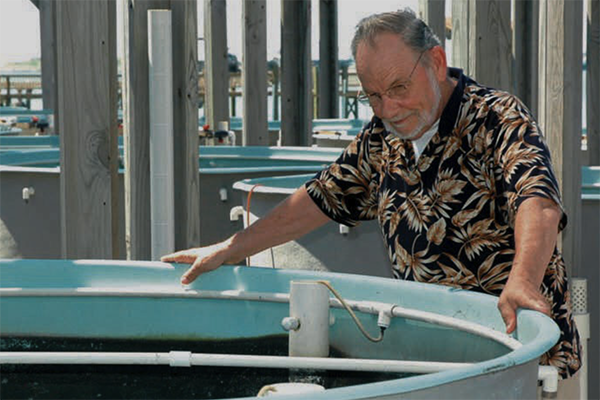
Dr. Addison Lee Lawrence, a well-known shrimp farming researcher who spent many years with Texas A&M University, passed away on Oct. 14, 2022. He authored or co-authored many technical articles on shrimp farming, many of which appeared in the Advocate.
Dr. Lawrence, 86, had a prominent career focused on shrimp farming research and a full life dedicated to his family and friends. His academic career began with BS, MA and Ph.D. degrees in the state of Missouri, USA, followed by a postdoctoral fellowship at Hopkins Marine Station of Stanford University.
His transformational academic step occurred in 1979 when he moved from the University of Houston to Texas A&M University to lead a shrimp farming program intent on solving ongoing industry bottlenecks regarding shrimp reproduction in captivity and nutritional requirements. In the process, he also investigated basic physiology, artificial insemination, hybridization, cryogenics, water quality, grow-out techniques and many other topics. In 2015, Dr. Lawrence earned U.S. Patent and Trademark Office protection for his invention, “System and Method for Super-Intensive Shrimp Production.”
Addison retired in 2015 after 36 years of service at Texas A&M University beginning as a professor in the Department of Wildlife and Fisheries Sciences and culminating as a Texas A&M University Regent Fellow. While he published hundreds of papers as well as book chapters and patents, arguably Addison’s biggest legacy is his 105 graduate students from many countries and cultures, who continue to carry his spirit forward. Common themes of Addison’s students in describing his character were his remarkable energy, passion and determination which were apparent in his work ethic and approach to life and which also came across in his unique and compelling style of interpersonal communications and lectures.
“I had the distinct pleasure of studying under Dr. Lawrence at the Shrimp Mariculture Project in Port Aransas, graduating in 1990. This program was not only transformational to the shrimp industry, but it impacted the lives of numerous students and employees who formed an exceptional network and extended family that is outlasting all of our careers. The program, friendships, and adventures enjoyed have enriched our lives leading to exceptional careers and a huge network of friends. Although Addison has passed, the stories and adventures will live on in our hearts and I am sure our failures, successes and adventures will be the topic of the SMP family gossip for years. We will all miss this dynamic evangelist of shrimp mariculture but hopefully, we can continue the legacy through this extended family.” – D. Allen Davis Ph.D., Professor, Auburn University
“I was working 80 hours per week, every day trying to complete my Ph.D. program as soon as possible. But Addison was always working harder than me. I can remember on several early Sunday mornings, I would come to the shrimp lab to clean tanks, feed the animals and take care of my research. Addison would be in his office, slouching over his desk with barely open eyes. He was working all through Saturday night finishing a publication, proposal or presentation. He always inspired me to be better. Addison was always protective and committed to his students. Being part of the Shrimp Mariculture Project was like being part of a family. All of Addison’s advice and teaching, both personally and professionally, truly helped me to develop my career and contributions to the global aquaculture industry.” – Dean Akiyama, Ph.D., Aquaculture Technology Advisor, Jakarta, Indonesia
“Addison was passionate about his research and had a work ethic that felt more like a graduate student than a tenured professor. It wasn’t unusual for him to work late into the evenings and through weekends. This spirit was contagious and led to higher productivity of our whole team. I recall Addison joining me on one of a series of offshore research cruises on a commercial shrimp vessel to collect adult shrimp in various stages of maturity. Addison discovered that, like me, he was susceptible to seasickness during his first few days at sea. When other seasick members of our team would have to stop and lie down, Addison kept working, taking turns with me to run to the gunwale to take care of our rebelling stomachs. Addison also enjoyed connecting with everyone on a personal level and frequently hosted holiday potluck dinners, which were especially nice for foreign students who were away from their families.” – George Chamberlain, Ph.D., President, Global Seafood Alliance
“I always thought that Addison missed his calling by not being an evangelical preacher or politician. His energy, belief and enthusiasm for shrimp aquaculture were beyond compare. This was evident whether speaking in public or in private. He could take the most mundane study on some feed additive and whip a crowd into a fervor.” – Scott Horton, Business Development Manager at Lallemand Inc., Canada
“One of my fondest memories of Addison was seeing him dance with his wife. He was a great dancer but what really impressed me was the obvious joy with which he tore up the floor. This to me exemplified so much of the decades over which I had the privilege to be his friend and colleague. He went after life with the same joy, gusto and incredible skill. He was the world expert on shrimp and nutrition who, by leveraging grants, mentoring so many students and publishing, basically built the foundation upon which many of us stand today. He did not stop there, constantly looking to apply his discoveries commercially. The amount of work he accomplished in a day was an example to all. The grand legacy he leaves behind will live on for the rest of us to continue the work.” – Craig Browdy, Ph.D., R&D Director, Zeigler Bros., Inc.
“Dr. Addison Lawrence was known to me not only as an accomplished and world-renowned scientist in shrimp mariculture, but also as a loving father. Hearing him talk about the economic importance of aquaculture, and its potential for solving world hunger, inspired my own career in fish health. His passionate teaching also encouraged me to ‘break out of my shell’ and learn to become an effective speaker and teacher. I am forever indebted to his love and support for me, my wife, and my children.” – Mark Lawrence, Ph.D. (son), Department of Comparative Biomedical Sciences, Mississippi State University
“In many ways, Addison was a giant of an individual. In his personal mannerisms, his goodness, his work ethic, his quantity of scientific contributions, his influence as a teacher and his contributions to the aquaculture industry in general. Early in his life he recognized that aquaculture would make a major contribution to feeding the world and dedicated his career to helping make that vision come true. As a shrimp nutritionist, he developed a one-of-a-kind research facility for doing nutritional experiments with shrimp while at Texas A&M University. However, his true passion was to see the day when shrimp, grown in land-based high-density recirculation production systems, would replace tuna as the Chicken of the Sea. His nutritional contributions and his contributions to production system development including his enthusiasm and passion provided the foundation for numerous pioneering projects which are paving the way for Addison’s dream to come true. To remember Addison is to remember his technical presentations. No one ever fell asleep. They were always factual, forceful and (to borrow one of Addison’s favorite words)” fannn-tastic.” He will be remembered in many ways. He was a fierce competitor especially when it came to his passion. He was a most gracious host, as those who had the privilege of enjoying his hospitality will attest. Professionally, he was extremely productive and prolific. His legacy will live on through the lives of his many associates and his many, many students whose lives he influenced as their teacher. To have known Addison and to have him as a friend is an honor to be remembered. – Thomas R. Zeigler, Ph.D., Senior Technical Advisor, Past President and Chairman, Zeigler Bros., Inc.
Dr. Lawrence also had a large and loving family. Addison married Jacqueline Lee Vorhees in 1959, and they welcomed into the world Addison Vorhees, Duane Miller, Mark Lee and Glenn Lee before Jacqueline’s passing away in 1967. He married Katherine Marie Johnson, and their daughter Debbie Marie was born in 1970. He married Rose Anne in 2005 welcoming Robbie Eikel, wife Brandy and Laurie Thompson, and husband Wayne to his beloved family circle. He is survived by his wife, Rose, children Addison, wife Debi; Duane, Mark, wife Jenny; Glenn, wife Beth; Debbie, husband Eric, Robbie, wife Brandy; Laurie, husband Wayne, 29 grandchildren and five great-grandchildren and many friends and colleagues.
Follow the Advocate on Twitter @GSA_Advocate
Author
Related Posts
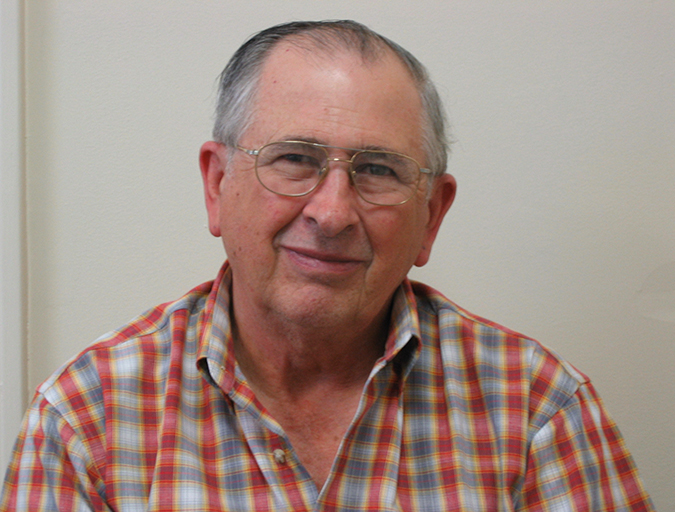
Innovation & Investment
After half a century, Auburn’s Claude Boyd to ‘retire’
Friends, colleagues and former students of longtime Auburn University Professor Claude E. Boyd, Ph.D., don’t expect the Mississippi native to slow down, despite the quiet announcement of his retirement earlier this month. The 50-year veteran researcher’s career has been truly extraordinary.
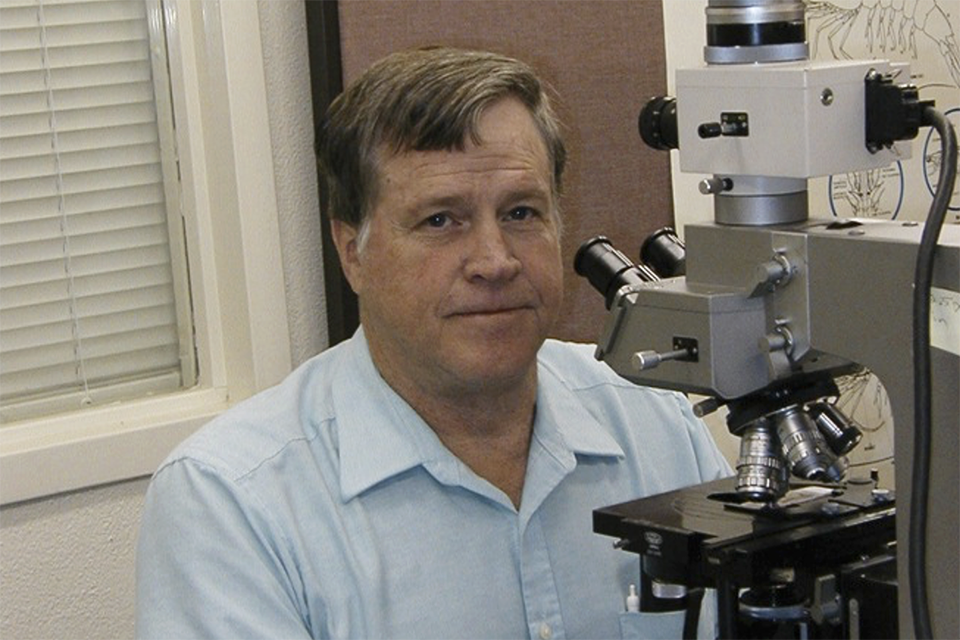
Intelligence
Donald Lightner, influential figure in shrimp aquaculture, remembered
Donald Lightner, pre-eminent shrimp pathology researcher and longtime head of the University of Arizona Aquaculture Pathology Laboratory, has died.
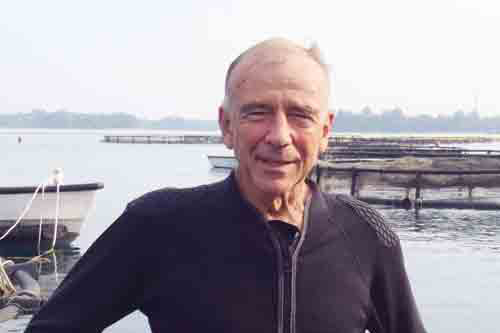
Intelligence
Aquaculture researcher and shrimp-farming pioneer Alain Michel dies
Alain Michel, an aquaculture researcher who helped develop shrimp-farming industries in tropical countries, has died, according to sources.
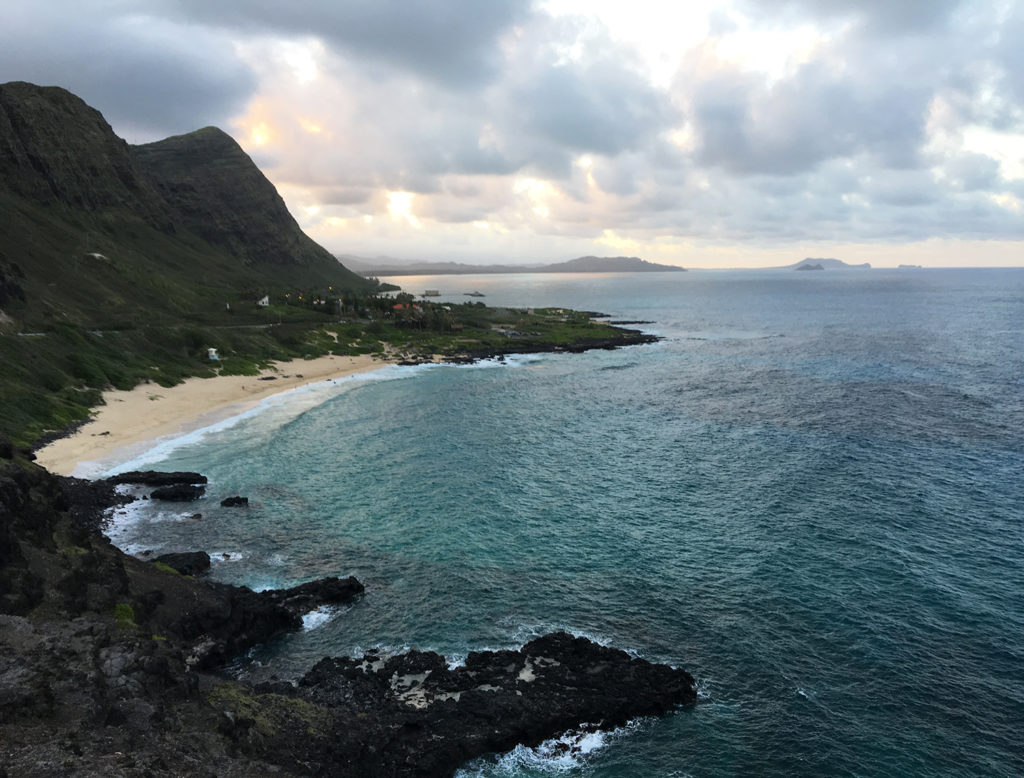
Health & Welfare
Born in Hawaii, SPF broodstock shrimp industry faces globalization
The next step for shrimp breeding will be developing animals that aren’t just disease-free, but increasingly resistant to multiple pathogens. The industry is globalizing, with suppliers setting up shop overseas. But its birthplace will always be Hawaii.


